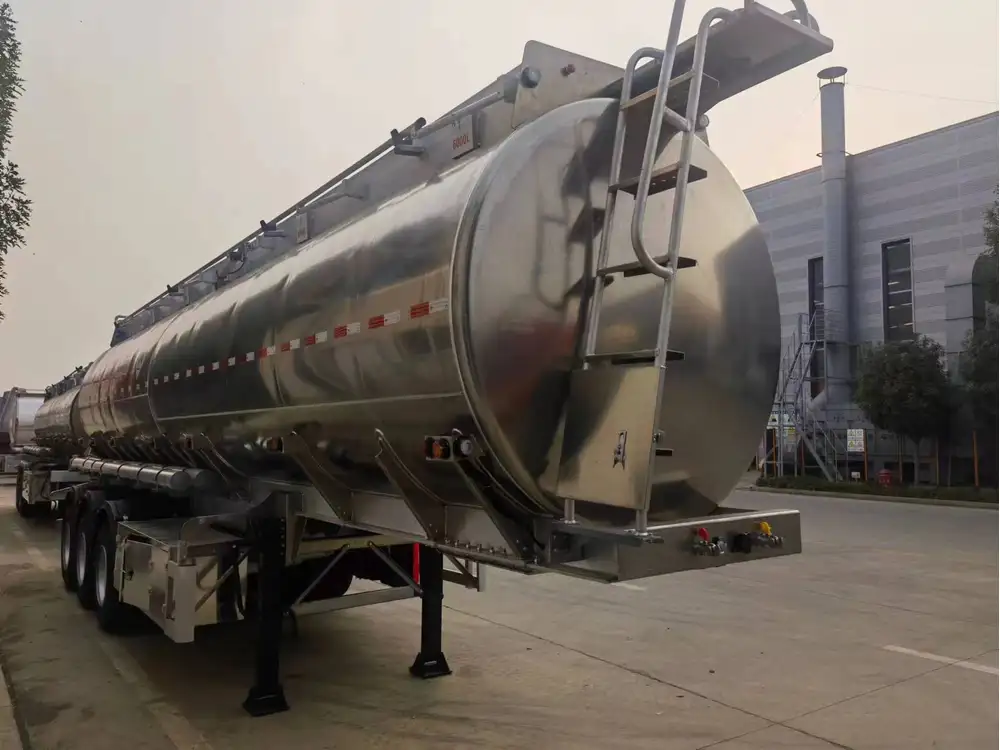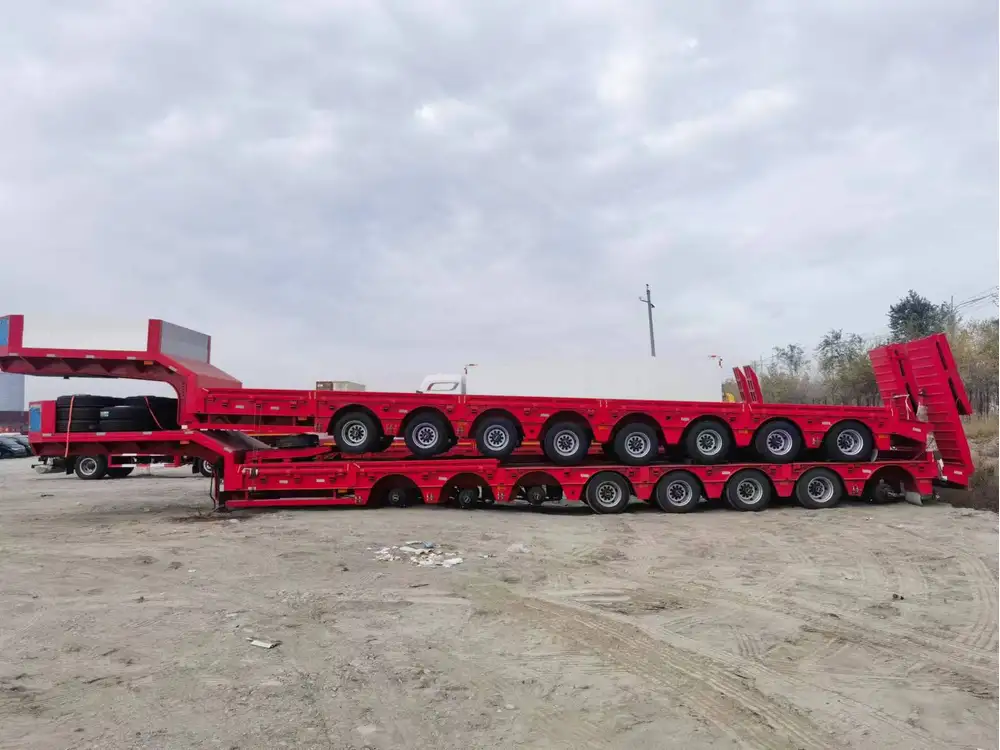The world of hauling and transportation often raises questions about the capabilities of different vehicles, particularly the strength and versatility of pickups in relation to semi trailers. In this article, we will dissect the nuances of towing a semi trailer with a pickup truck, exploring specifications, regulatory concerns, and practical advice to help you make informed decisions.
Understanding Towing Capacity
What Is Towing Capacity?
Towing capacity refers to the maximum weight a vehicle can safely tow. For pickup trucks, this figure varies by model, engine type, and configuration. It is essential to view this number from the manufacturer’s specifications, as exceeding it may lead to severe mechanical failure or dangerous road incidents.
| Pickup Model | Towing Capacity (lbs) | Engine Type |
|---|---|---|
| Ford F-150 | Up to 14,000 | V6, V8 |
| Chevrolet Silverado | Up to 13,300 | V6, V8 |
| Ram 1500 | Up to 12,750 | V6, V8, EcoDiesel |
| GMC Sierra 1500 | Up to 11,800 | V6, V8 |

Semi Trailer Weights
The weight of semi trailers generally ranges widely, with lightweight models starting around 10,000 pounds and heavier implementations reaching up to 40,000 pounds or more, depending on the load. Here’s a breakdown of various types of semi trailers:
| Trailer Type | Average Weight (lbs) |
|---|---|
| Flatbed Trailer | 7,000 – 8,000 |
| Refrigerated Trailer | 15,000 – 20,000 |
| Dump Trailer | 10,000 – 15,000 |
| Tanker Trailer | 20,000 – 30,000 |
Understanding both pickups’ capabilities and the weight of the trailer is crucial when considering towing options.
Pickup Truck Configurations for Towing
1. Engine Size and Type
The engine plays a critical role in the towing capacity of a pickup truck. Typically, trucks equipped with turbocharged engines or larger V8s tend to have higher towing capacities compared to their V6 counterparts.

Considerations:
- Turbochargers provide additional power without requiring a larger engine block.
- Diesel Engines often offer better torque, which is vital for heavy loads.
2. Transmission Type
A truck with an automatic transmission can provide a significant advantage when towing, as it allows smoother gear shifts and maintains better engine power even under load.
3. Rear Axle Ratio
A higher rear axle ratio can enhance towing performance by allowing the truck to pull heavier loads more efficiently.
| Rear Axle Ratio | Implications |
|---|---|
| 3.31:1 | Lower towing capacity, better fuel efficiency |
| 4.10:1 | Higher towing capacity, lower fuel efficiency |

Regulatory and Safety Considerations
Towing Regulations
When contemplating towing a semi trailer with a pickup, it’s necessary to understand local and federal laws, as they dictate how much weight you can pull, alongside licensing and vehicle designations.
Important Regulations Include:
- Gross Vehicle Weight Rating (GVWR): It’s crucial not to exceed the combined weight of the towing vehicle and the trailer.
- Special Towing Licenses: Depending on the weight of the trailer and your location, you may need a specific license to tow certain types of loads.
- Safety Chains: Regulations often require safety chains to provide added security in case of a towing system failure.

Load Distribution
Properly distributing the load is vital for safe towing. An improperly loaded trailer can lead to swaying, detachment, or possibly overturning.
Best Practices:
- Load Leveling: Aim to keep about 60% of the weight in the front half of the trailer.
- Quick Release: Allow for ample room for hitch connection and disconnection tasks.
- Balancing: Utilize weight distribution hitches to help balance the load across all wheels.
Practical Advice for Towing a Semi Trailer with a Pickup

Preparing Your Vehicle
Before hitting the road, ensure that your pickup truck is prepared for the towing task:
- Inspect the Hitch: Ensure that the hitch is rated for the load and correctly installed.
- Tire Check: Verify that all tires, including those on the trailer, are inflated correctly and in good condition.
- Brake Capacity: Ensure that your vehicle’s braking system is robust enough for the additional weight. Consider investing in an auxiliary brake system for the trailer.
Implementing Safe Towing Practices
To maintain safety while towing, adhere to the following practices:
- Decrease Speeds: Towing a trailer invariably requires slower speeds to maintain control.
- Increase Stopping Distance: Allow for a greater distance to brake when carrying a heavy load.
- Plan Your Route: Select routes with wide turns and ramps for safe entry and exit.
Utilizing Advanced Technology
Modern pickups oftentimes come equipped with advanced towing technology designed to simplify the towing process. Features like adaptive cruise control, blind-spot monitoring, and integrated trailer brakes can greatly enhance safety and convenience.

Common Questions About Towing Semi Trailers with Pickups
Can You Legally tow a Full-Sized Semi Trailer?
Legally, towing a semi trailer requires adherence to specific local and federal laws depending on the weight of the trailer and overall vehicle. Most pickups can handle smaller, lighter trailers, but pulling a full-sized semi trailer often exceeds both the pickup’s weight rating and local regulations.
What Type of Pickup Truck is Best for Towing Heavy Loads?
Generally speaking, heavy-duty trucks are your best bet for towing. Models like the Ford F-250 or Ram 2500 are tailored for power and capability, suitable for towing heavy loads with a maximum towing capacity ranging from 20,000 lbs upwards.
| Truck Model | Maximum Towing Capacity (lbs) |
|---|---|
| Ford F-250 | 20,000 |
| Ram 2500 | 19,780 |
| Chevrolet Silverado 2500 | 18,500 |

Is It Recommended to Use Lifted Trucks for Towing?
While a lifted truck can enhance off-road performance, it may create challenges for towing, such as altered center of gravity or mismatched axle height. This might lead to complications in weight distribution and control over the trailer.
Conclusion: Diligently Assessing Your Towing Needs
In conclusion, while it might technically be possible to pull a semi trailer with a pickup truck, various intrinsic factors dictate whether it is practical and safe to do so. Always take vehicle capabilities, load weight, and local regulations into account.
By following guidelines for safe towing and maintaining awareness of both vehicle limitations and road safety protocols, one can ensure that towing tasks are completed with utmost efficiency and security. Ultimately, making informed choices will present substantial benefits, not just in terms of legality and safety, but also in preserving the integrity of both the towing vehicle and the trailer being towed.



